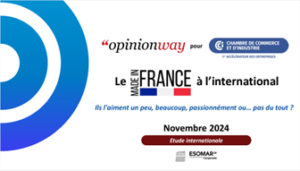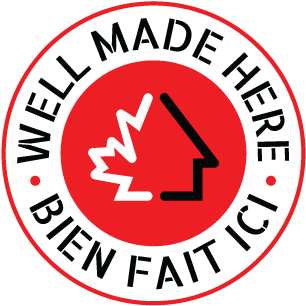What Others Think of Products Made in France
On the 12th edition of a specialized fair on French products called MIF (for Made in France), the European polling firm OpinionWay has just published a study on the perception of French products among the population in four countries: Germany, Italy, China, and the United States. There are lessons to be learned and inspirations to be found in it.

Approximately 4,000 adults were surveyed online from October 10 to 16, 2024. The margin of error is between 1.4 and 3.1 points.
Firstly, it’s interesting to see that, depending on nationality, Made in France products are appreciated quite differently.
For Germans, it’s the quality of French products that stands out over other characteristics, while for the other three populations surveyed, they are associated with luxury.
However, all agree that French-made products are not perceived as particularly environmentally responsible.
The most iconic French products are cosmetics for Germans and Italians, while the Chinese primarily associate France with jewelry, and Americans see it mainly as food and beverages.
The rate of consumption varies greatly, with nearly all surveyed Chinese (97%) claiming to consume products from France, while only two out of three Americans report purchasing them.
French products seem particularly well-known in China, with 98% of respondents aware of them. At the other end, only 58% of Americans find them visible.
All surveyed groups – ranging from 74% to 96% – would like to buy more French products and would appreciate a greater variety of products available in their country. Moreover, the organization of the Olympic and Paralympic Games is expected to increase their desire to consume more French products.
Click here to view the full survey (in French only).

Home page : MIFEXPO – Le salon du Made in France

What Do We Think?
The question was posed to Richard Darveau, President and CEO of the “Well Made Here” program:
“Our view is that we would like to have a budget to survey, in our case, two populations: Canadians and Americans, in order to verify certain assumptions, such as the following: Canadians do not care about the origin of products, and Americans are patriotic.”
A request will be made to the federal government, which would also find such information useful.
